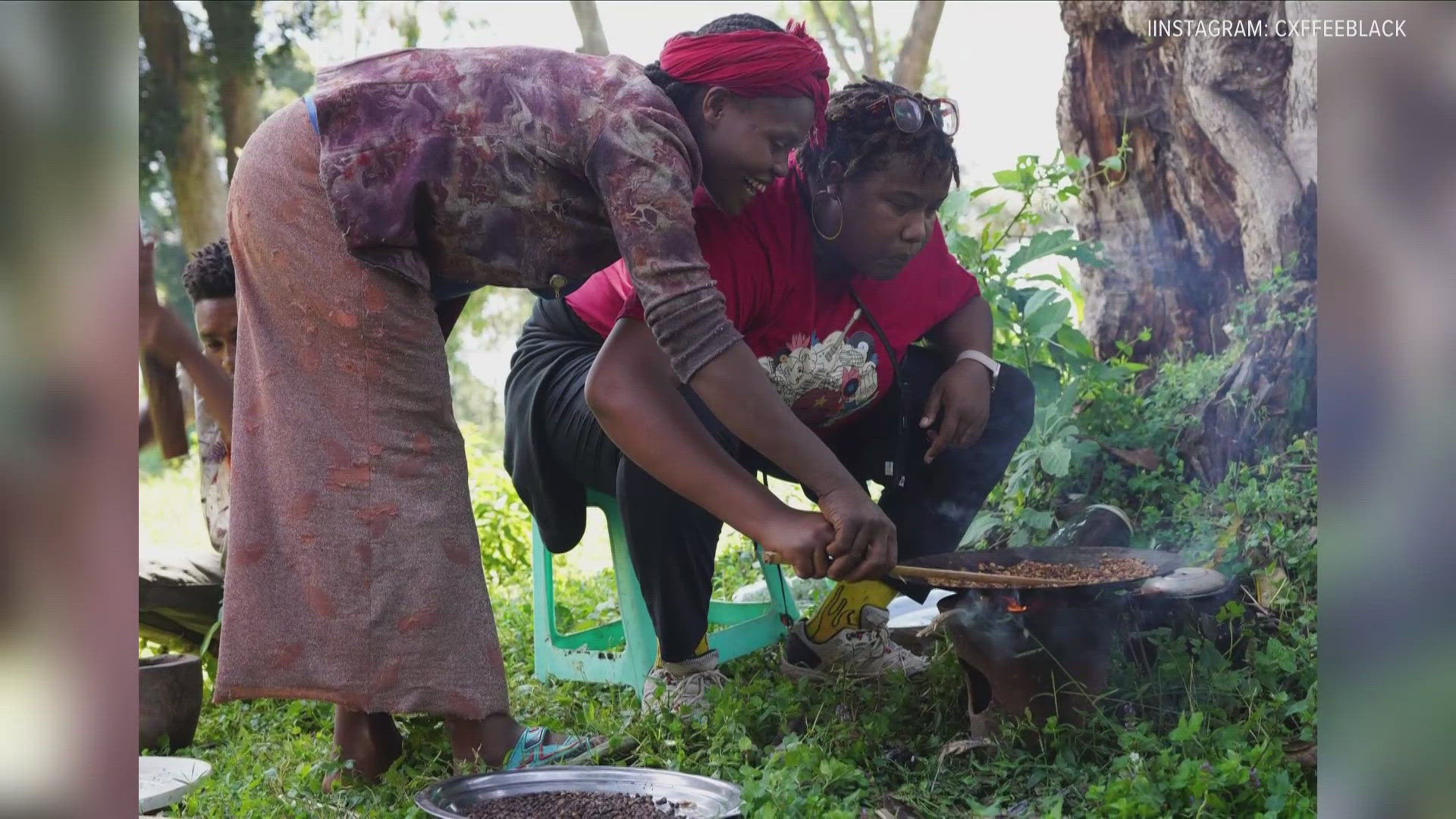MEMPHIS, Tenn. — Coffee has become a staple in the lives of many Americans. The bitter or sweet taste, the caffeine jolt, can help people get ready for the day.
According to Joe's Garage Coffee, 400 million cups of coffee are consumed every single day, and reports from the National Library of Medicine say roughly 150 million adults over the age of 20, or 75 percent of Americans, drink coffee every day.
However, often times the culture of coffee can be lost in the consumerism. According to the co-owners of Memphis based coffee shop CxffeeBlack, often times specialty coffee finds itself with European or White American professionals, when in actuality it has roots in African culture. This is where the Barista Exchange Program comes in.
For the past year, baristas like Sydni Barnes, have gotten the chance to explore the culture of coffee.
“Regardless of our backgrounds in coffee, this was all of our first times going to visit the beginning of the supply chain,” said Barnes.
The Memphian, who also happens to be the second Black female roaster in the city, took part in the program in November 2023. She and three other Black baristas flew to Rwanda and Ethiopia to see how coffee takes on a more personal purpose than it would in America.
Ethiopia is presumed to be the place where coffee was first discovered.
“It wasn’t an act of just drinking coffee for energy or production, it was a means of celebration,” Barnes said.
“More of a culture and a social set up, where people sit together and enjoy a cup of coffee and share their experiences in life. It’s more therapeutical in a way,” said Beamlak Melesse Bekele, an Ethiopia Barista who is now taking part in Phase 2 of the program.
Since September, the Memphis coffee shop has played host to the transcontinental baristas. Over the following weeks the groups visited other black-owned coffee shops across the Southern U.S. to further their training and see the role coffee plays in America.
“There’s the specialty coffee industry, and also there are places like CxffeeBlack that is trying to change the way coffee is being consumed," Bekele said. "Where the coffee is not just valued for being caffeinated, but also the community that is built around it, and the love that you share with the people that come.”

